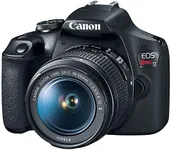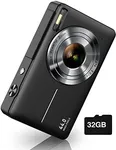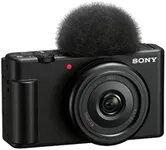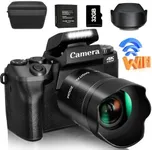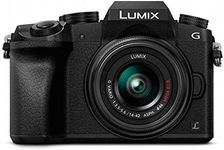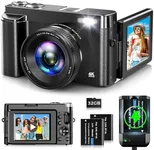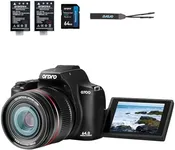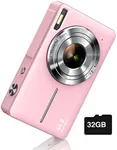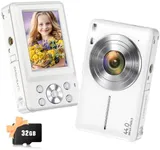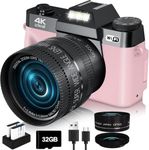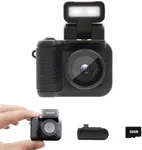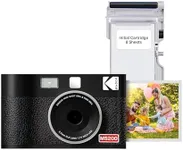Buying Guide for the Best Photo Camera For Beginners
Choosing the right photo camera as a beginner can be an exciting yet overwhelming experience. The key is to understand what features are most important for your needs and how they will impact your photography. Here are some essential specifications to consider when selecting a camera, along with explanations to help you make an informed decision.Megapixels (MP)Megapixels refer to the resolution of the camera's sensor, which determines the detail and clarity of your photos. Higher megapixels mean more detail, which is useful for large prints or cropping images without losing quality. For beginners, a camera with 16-24 MP is usually sufficient, as it provides a good balance between image quality and file size.
Sensor SizeThe sensor size affects the camera's ability to capture light and detail. Larger sensors generally produce better image quality, especially in low light conditions. Common sensor sizes include Full Frame, APS-C, and Micro Four Thirds. Full Frame sensors offer the best quality but are more expensive and bulkier. APS-C sensors are a good middle ground, providing excellent quality and more compact camera bodies. Micro Four Thirds sensors are smaller and more portable, making them ideal for travel and casual photography.
ISO RangeISO measures the camera's sensitivity to light. A wider ISO range allows you to shoot in various lighting conditions, from bright daylight to low light environments. For beginners, a camera with an ISO range of 100-3200 is typically adequate. Higher ISO values can introduce noise (graininess) in photos, so it's important to find a balance that suits your shooting conditions.
Autofocus SystemThe autofocus system determines how quickly and accurately the camera can focus on a subject. More autofocus points and advanced tracking features can help capture sharp images, especially for moving subjects. Beginners should look for a camera with at least 9-11 autofocus points and reliable face detection to ensure ease of use and good performance in various situations.
Lens CompatibilityThe availability of compatible lenses is crucial for expanding your photography skills. Different cameras support different lens mounts, so it's important to choose a system with a wide range of lenses that fit your needs. Beginners should consider starting with a versatile kit lens (e.g., 18-55mm) and then explore additional lenses as they become more experienced.
Manual ControlsManual controls allow you to adjust settings like aperture, shutter speed, and ISO, giving you more creative control over your photos. While automatic modes are helpful for beginners, having access to manual controls is essential for learning and improving your photography skills. Look for a camera that offers easy-to-use manual settings and a user-friendly interface.
Video CapabilitiesMany modern cameras offer video recording features, which can be a great addition for capturing moments in motion. Consider the camera's video resolution (e.g., Full HD, 4K) and frame rates (e.g., 30fps, 60fps) based on your needs. For beginners, Full HD (1080p) at 30fps is usually sufficient for high-quality videos without overwhelming file sizes.
ConnectivityConnectivity options like Wi-Fi, Bluetooth, and NFC allow you to easily transfer photos to your smartphone or computer for sharing and editing. These features can be very convenient for beginners who want to quickly share their work on social media or with friends and family. Look for a camera with built-in connectivity options to streamline your workflow.
Battery LifeBattery life is an important consideration, especially if you plan to shoot for extended periods or while traveling. Cameras with longer battery life reduce the need for frequent recharging or carrying multiple spare batteries. Beginners should look for a camera that offers at least 300-400 shots per charge to ensure a hassle-free shooting experience.
Build Quality and ErgonomicsThe build quality and ergonomics of a camera affect how comfortable it is to use. A well-built camera with a good grip and intuitive button layout can make a significant difference in your shooting experience. Beginners should handle different cameras to find one that feels comfortable and easy to use, ensuring a more enjoyable and productive photography journey.
